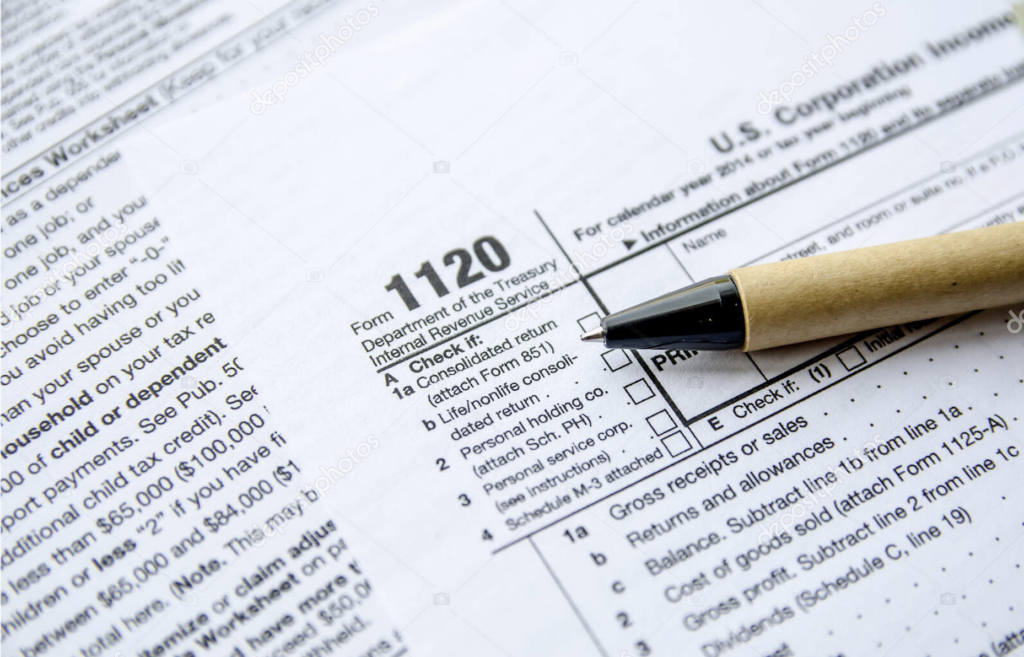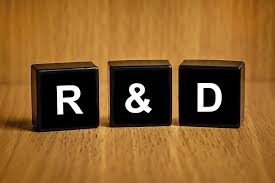Summary of Form 1120
Taxes can be a complicated topic for many business owners, particularly start-up founders. Figuring out which tax forms to fill out or how to be tax compliant in order to avoid potential penalties and maintain good standing with the government can be a challenging and time-consuming endeavor. In this guide, we will explore the fundamental requirements of Form 1120 for C-corporations and the common pitfalls associated with its preparation.
Corporations and entities taxed as C-corporations must file IRS Form 1120, the U.S. Corporation Income Tax Return, annually to report their income, tax deductions, and tax liability, even if they have no income or expenses to report. If your company was formed as a corporation, the default tax treatment is C-Corp, and you must file Form 1120. A Limited Liability Company (LLC) may also elect to be taxed as a C-Corp and report income on Form 1120.
Key Takeaways from this Form 1120 guide
- C-corporations use Form 1120 to report their income, gains, losses, deductions, and credits.
- All U.S. corporations must file Form 1120 as long as their Federal Employer Identification Number (EIN) is active, whether or not they have taxable income or business transactions during the tax year.
- Corporations must file with the IRS by the due date to avoid penalties. The due date is generally the 15th day of the 4th month following the end of the tax year unless the taxpayer is exempt under Section 51 or is required to file a special return.
- Use Form 7004 to request an automatic six-month filing extension for the corporation’s income tax return. An extension to file does not imply an extension to pay.
- All taxes owed must be paid by the original due date, not the extended due date.
What is Form 1120?
Form 1120, the U.S. Corporation Income Tax Return, is the form used by C-corporations to report their income, gains, losses, deductions, and credits to the IRS. It also enables taxpayers to determine their income tax liabilities.
Form 1120 has variations or sister forms that, depending on the structure of the corporation, may be required to be filed instead. Here are some examples of special Form 1120:
- Form 1120-S for S-corporations
- Form 1120-C for cooperative associations
- Form 1120-L for life insurance companies
- Form 1120-H for homeowners associations
- Form 1120-F for foreign corporations with income that is “effectively connected” with a U.S. trade or business
Why is it Important to File Form 1120?
Form 1120 must be filed, regardless of whether or not you have income, in order to always remain tax compliant and avoid penalties for failure to file. Due to the importance of corporate formalities in maintaining the limited liability benefits of this structure, it is imperative that all compliance requirements are met.
For instance, if you do not file your tax returns, you may be unable to claim any tax refunds or credits to which your corporation is entitled. C-corporations use Form 1120 to report their annual profits and losses as well as capital gains and losses from asset sales. It also enables taxpayers to calculate their tax obligations, including any taxes owed on foreign income. When obtaining particular types of sales contracts or loans, income tax returns are often required.
Who Must File Form 1120?
As long as their EIN is active, all U.S. corporations (including those in bankruptcy) are required to file Form 1120, whether they have taxable income or not, unless required or elect to file a special return.
Other entities that are required to file Form 1120 include:
- Entities that elect to be taxed as corporations. Form 8832 must be filed with Form 1120 during the year of election.
- Farming corporations (excluding subchapter T cooperatives).
- Corporations holding an ownership interest in a Financial Asset Securitization Investment Trust (FASIT).
- Foreign-owned domestic disregarded entities.
- Qualified Opportunity Fund (QOF). The corporation must file Form 1120 and attach Form 8996 in order to be certified as QOF.
- Qualified Opportunity Investment (QOI). Corporations that hold a qualified investment in a (QOF) at any time during the tax year must attach Form 8997 when filing their returns.
When is the Deadline for Form 1120?
In general, a corporation must file Form 1120 tax returns annually by the 15th day of the fourth month following the end of its tax year. A six-month extension can be obtained by filing Form 7004 by the regular due date of the return.
The following are the deadlines for corporations with different types of tax years, structures, and situations:
- Calendar Year: 15th of April, following the end of the tax year
- New corporations filing a short-period return: by the 15th day of the 4th month following the end of the short-period
- Corporations with a fiscal year ending June 30: the 15th day of the 3rd month following the end of its tax year
- Corporations with a short tax year ending anytime in June: the 15th day of the 3rd month following the end of its tax year
- Final Tax Return: the 15th day of the 4th month following the date the corporation was dissolved
If the due date is a Saturday, Sunday, or legal holiday, the corporation may file Form 1120 on the next business day. The postmark date serves as the filing date for forms submitted by mail.
Where is Form 1120 Filed?
In general, corporations can electronically file (e-file) Form 1120 and all related forms, schedules, and attachments. If the electronic filing is rejected, the return may be submitted via U.S. mail. The location of the company, the address on the tax return, and/or the type of return determine the location of the IRS processing center for submissions.
Where Can I Find the Most Recent Version of Form 1120?
The IRS website provides the newest version of the form. Check back often because the forms are updated occasionally, and the filing rules can change. The IRS website also contains instructions for the form.
Are There Penalties for Filing Form 1120 late or incorrectly?
If a C-corporation fails to file its tax return by the due date, it will be subject to a late filing penalty unless it can show that the failure to file was due to a reasonable cause. A C-corporation may owe the IRS a late filing penalty equal to 5% of the amount of unpaid tax for each month (or fraction of a month) that taxes remain unpaid, up to a maximum of 25% of the unpaid tax.
For returns required to be filed in 2023 that are 60 days past due, the minimum Failure to File Penalty is either $450 or 100% of the tax due as shown on the return, whichever is less. In addition, if the amount shown on the return is not paid, a Failure to Pay Penalty of ½ of 1 or .5% is assessed on the unpaid tax for each month or portion of a month that the tax remains unpaid.
In the event of negligence or failure to follow tax rules and regulations, a 20% Accuracy-Related Penalty will be imposed on the portion of the underpayment of tax attributable to negligence or disregard. If there was a substantial understatement, the Accuracy-Related Penalty is calculated as 20% of the portion of the underpayment of tax that was understated on the return.
If you incorrectly claimed a refund or credit, the company will be assessed an “Erroneous Claim for Refund or Credit Penalty” equal to 20% of the excess amount claimed. In each of these instances, penalties will be subject to interest.
What Information and Schedules Must be Included with Form 1120?
The basic information required in filing Form 1120 includes the EIN, date of incorporation, total assets, gross receipts, cost of goods sold, capital gains, deductions, and other credits such as R&D tax credits (we can tell if you qualify).
Certain corporations may be required to submit additional schedules or forms alongside Form 1120. For the complete list, please visit the IRS website.
Are there any deductions or credits that can be claimed on Form 1120?
C-Corporations can deduct certain business expenses that other types of business entities cannot, such as reasonable salaries and bonuses paid to shareholders, fringe benefits, and charitable contributions of up to 10% of their taxable income in a given year (excess contributions may be carried forward for up to 5 years). There are additional deductions that can be claimed, such as the Net Operating Loss (NOL) Deduction and Special Deductions. The IRS also provides a comprehensive list and in-depth explanation of these deductions on their website.
How Do I Prepare Form 1120?
Before you begin the process of preparing your corporate income tax return, create a checklist of the business and financial information you will need to complete and file Form 1120. After that, gather all the necessary data, including the basic information about the company (corporate name, address, EIN, date of incorporation, etc.) and financial information, which can be obtained from the company’s financial statements and supporting schedules showing the total assets held by the corporation, the total income and allowable deductions, the cost of goods sold, dividends, interest earned, capital gains, and tax credits, among others.
Once you have gathered the necessary information, complete the form, including any required schedules. Then, review your return and verify that all inputted information, as well as the computation of taxes owed to the IRS, are accurate. Watch out for any typographical errors. Attach all the required supplementary forms or schedules to Form 1120. After confirming the form’s completeness, submit it electronically.
If you find the task too complex and time-consuming, contact Cleer Tax and have a dedicated and highly experienced tax accountant handle your corporate filing requirements. Over 5,000 businesses have entrusted Cleer with their taxes because we guarantee 100% compliance.
How Long Does it Usually Take to Prepare Form 1120?
This depends on the nature and complexity of the company’s business transactions and the availability and completeness of the required financial data. However, preparation will not take long if the financial statements are already prepared and available, along with all of the necessary documents and forms. Cleer Tax can prepare your Form 1120 within 10 to 15 business days after receiving all of your financial documents and other information, as long as there is no Form 5471 for a foreign subsidiary.
What are Common Errors in Completing Form 1120?
The following are the most common errors:
- Missing the due date (resulting in penalties)
- Failure to maintain records or bookkeeping throughout the year resulting in inaccurate financial information
- Incorrectly entering or typing information such as EIN, address, or name on the tax form
- Making math errors, such as transposition errors in entering income or expenses
- Entering inaccurate amounts for business income or expenses
- Failure to attach required supporting documentation to Form 1120
- Using the phrase “see attached” instead of completing the return
- Failure to make the full estimated tax payment
Do You Have Any Tips for Properly Filing Form 1120?
Here are some helpful tips for completing your Form 1120:
- Understand the structure of your business. This is essential because the structure of your business will impact your tax and filing obligations.
- Before filing, gather all necessary business and financial data, including financial reports, forms, and schedules. Also, ensure that the entity’s name, address, and EIN match IRS records.
- Organize data. This will streamline the process and reduce the likelihood of errors.
- Complete the form by providing accurate financial data.
- Ensure that the financial data is reported on the correct line.
- Review and proofread the tax return for accuracy.
- File on time. If you need an extension, submit Form 7004 before the deadline.
- Pay the total tax due by the filing deadline, even if you request an extension.
Remember that proper tax reporting and compliance necessitate the accurate and thorough completion of Form 1120. If you have any doubts or questions, we can help you file Form 1120 to ensure accuracy, compliance, and tax optimization. By enlisting the assistance of Cleer Tax, you will be able to confidently navigate the complexities of tax laws and make sound financial decisions.
When filing Form 1120, a C-corporation must consider several important factors, including:
1. Complexity of Tax Code. The tax code is complex, and completing Form 1120 requires adherence to various rules and regulations. Our tax accountants stay abreast of tax laws and bulletins to help clients avoid penalties for making mistakes.
2. Avoiding Errors. Accurately completing Form 1120 is crucial to avoid errors that could trigger IRS audits or inquiries, even if they are honest errors. We guarantee the work we do for your taxes is always error-free.
3. Optimizing Deductions and Credits. We can assist you in identifying deductions and credits for which your company may be eligible, potentially lowering your tax liability and optimizing your company’s tax position.
4. Staying Current with Tax Laws. Tax laws are constantly changing, and we stay updated on the latest regulations to ensure that your C-Corp remains compliant with new laws, avoiding penalties and maximizing benefits.
5. Minimizing the Risk of an IRS Audit. An IRS audit is something that everyone wants to avoid, and if you are not careful, self-preparation of Form 1120 can raise red flags. We have the expertise to complete your tax filing accurately and thoroughly, reducing the likelihood of an IRS audit.
6. Handling Complex Situations. If your C-Corp has intricate financial activities, international operations, or industry-specific deductions, our expertise and extensive experience assisting non-US founders can be invaluable in navigating these complexities.
7. Choosing a Tax Accountant for Peace of Mind. Knowing that your Form 1120 is being handled by a qualified tax accountant gives you peace of mind, relieving you of the stress associated with complex tax filings. We guarantee 100% satisfaction with our work and will pay a penalty if we make a mistake.
8. Responding to IRS Inquiries: If the IRS sends you a letter, don’t panic! We can assist you in writing responses and addressing any concerns. Simply forward your IRS letter to hello@cleer.tax.
9. Strategic Planning: We can help your C-Corp strategize for the future, ensuring that your financial decisions are aligned with your long-term goals while optimizing your tax situation. For any questions regarding a tax issue or if you need assistance with tax return preparation, reach out to our Cleer customer success team or book a consultation with one of our expert tax professionals.
Can I Get a Tax Refund by Filing Form 1120?
If the total payments and credit declared on Form 1120 exceed the sum of total tax plus any applicable estimated tax penalty, the excess amount may be refunded or applied to future estimated tax liabilities.
Can Cleer Tax Help Me File Form 1120?
Navigating corporate taxes in the U.S. can be a daunting task, but with the help of our highly experienced tax professionals, you can have peace of mind and assurance that you will be tax-compliant while taking advantage of available benefits, such as tax credits and allowable deductions, to reduce your tax liabilities. Cleer Tax provides U.S. Corporate income tax preparation for U.S. companies and subsidiaries at a flat rate to help entrepreneurs do it right from the start.
It is crucial to not only file your tax returns on time but also to file them accurately because making mistakes on tax returns can be costly. We provide tax accounting services from preparation to filing of Form 1120, along with all the related schedules and forms (including Form 5472).
We can begin preparing the form once we have received all the required financial statements and supporting documentation. Before sending the draft of your Form 1120 for your final approval, it is reviewed by our internal Enrolled Agents, who have earned the IRS’s highest certification. Once approved, Form 8879 (IRS e-file Signature Authorization) will be sent to you for your signature to allow us to e-file Form 1120 on your behalf.
Click here to get help with your company’s tax preparation or email hello@cleer.tax, and we will get you started.






